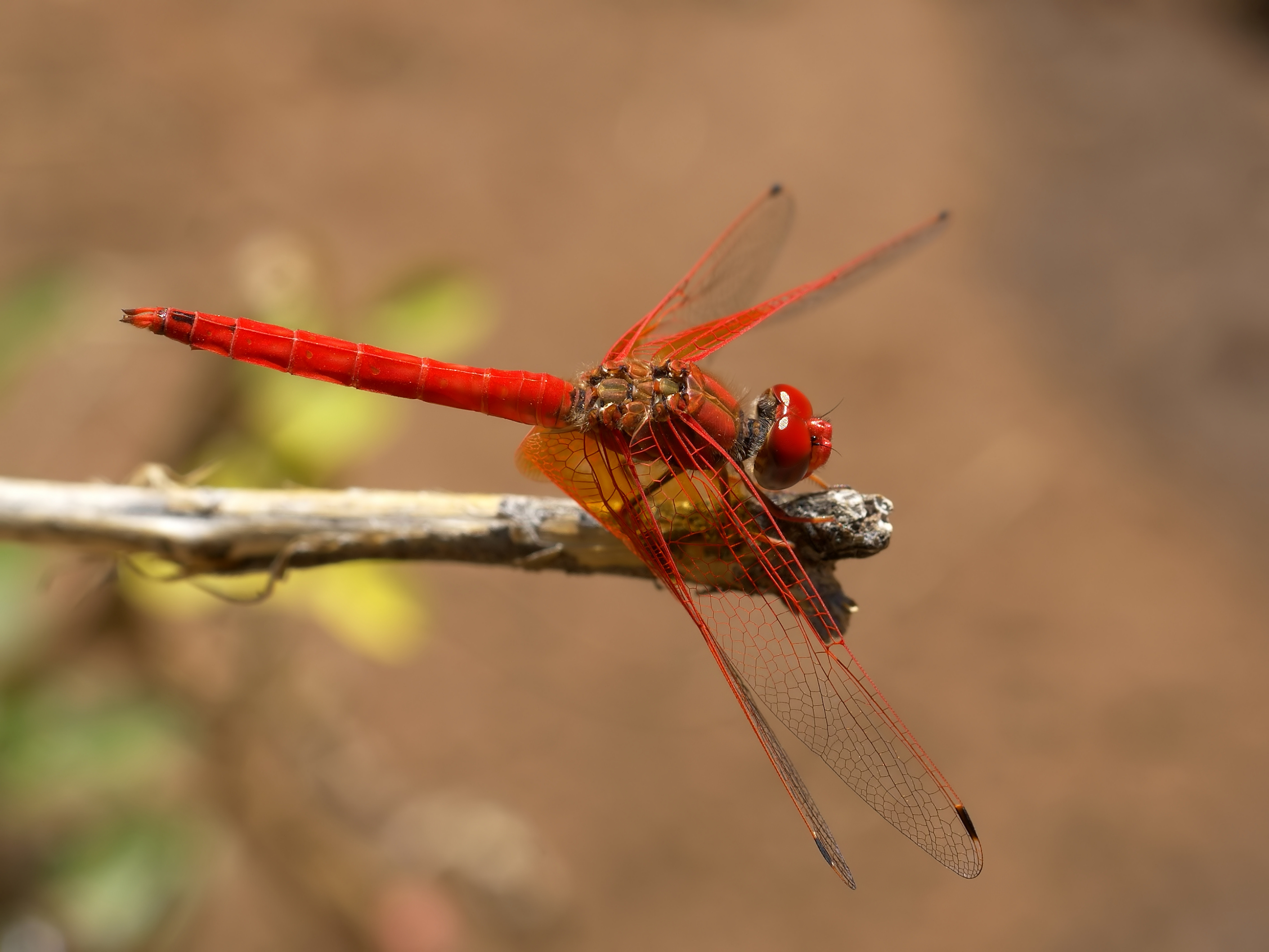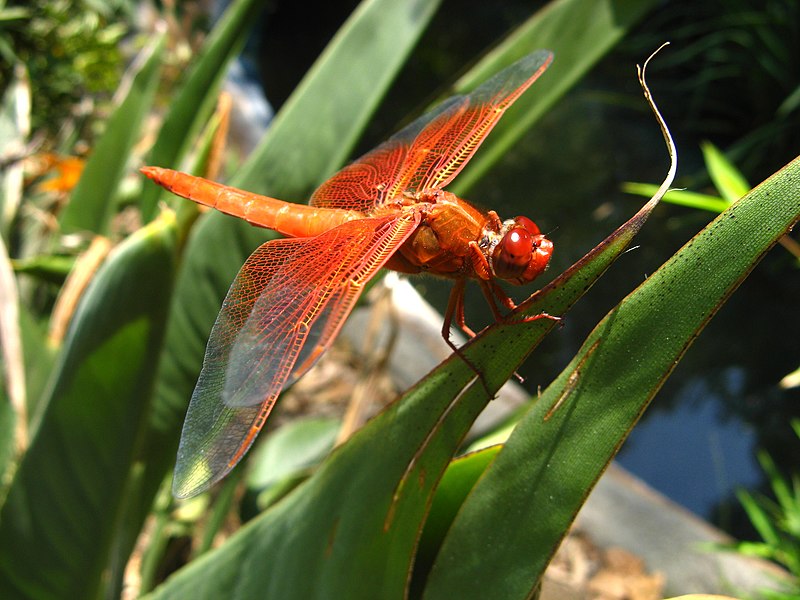.

Yellow-winged Darter (Sympetrum flaveolum): photo by André Karwath, 13 July 2005
On the bamboo
That marks the place of a dead man,
A dragon-fly.
That marks the place of a dead man,
A dragon-fly.
-- Kitô
Broad-bodied Chaser (Libellula depressa), male, Marie Machon Ciney Nature Reserve, Chapois, Belgium: photo by Luc Viatour, 2006
And the sun going in, --
The red dragon-flies.
-- Nikyû

Kirby's Dropwing (Trithemis kirbyi), Tsumeb, Namibia: photo by Hans Hillewaert, 7 June 2007
The dragon-fly
Perches on the stick
That strikes at him.
-- Kôhyô

Ruby Meadowhawk Flame Skimmer (Libellula saturata), male: photo by Regular Daddy, May 2008
Dragonfly haiku, tr. R. H. Blyth in Haiku, Vol. IV, 1951



8 comments:
The memory of the haiku activity back in fifth grade looms large and heavy. The way Japanese characters can apparently flash so many meanings, which gives the haiku its power, makes it seem to me that they are hardly translatable. Maybe the English equivalent would be some kind of crossword poem. Any light you can shed on my dim view would be appreciated
Ideograms, that is, ideograms
I wish I could be as sharp and sensitive as these haiku poets all the time. I wish I could choose photos this beautiful all the time.
We are allowed glimpses of the heavens, but we do not live in heaven. Maybe, if we're not Japanese, it's pretty much the same with haiku.
We can't be as beautiful as dragonflies, but we can revel in the delight of seeing a dragonfly up close, in great photos like these. (And Curtis, thank you once again for your fine eye.)
Here's what R. H. Blyth has to say about the peculiar distinctiveness of haiku as a genre:
"It is not merely the brevity by which it isolates a particular group of phenomena from all the rest; nor its suggestiveness, through which it reveals a whole world of experience. It is not only in its remarkable use of the seaon-word, by which it gives us a feeling of a quarter of the year; nor its faint all-pervading humour. Its particular quality is its self-effacing, self-annihilative nature, by which it enables us, more than any other forms of literature, to grasp the thing-in-itself. Just as we are to be a state of *muga*, self-lessness, when we compose haiku, so the haiku is not a thing of beauty and a joy forever, but a finger-post, a raft unwanted when the river is crossed. .. the real region of haiku [lies not in its literary charm and value, but in] the experience, the mutual reunited life of poet and things."
Of the first of the three haiku here, Blyth comments:
"The indifference of things is continually striking us, and striking us deeply before we shallowly think about it. The dead man, the bamboo, the dragon-fly have come together at this point of space, at this point of time."
What is revealed, Blyth suggests, is the "accidental-inevitable, free-determined nature" of things.
Maybe, if we would wish to look at the universe in the most objective yet at the same time the most respectful and appreciative of ways, haiku might offer a small clear portal through which to direct our gaze?
Would this would be the way to look?
thanks, Tom.
(One wee correction of my always-shaky typing, in the lovely bit on haiku by R.H. Blyth, above: "seaon-word" should, of course, be "season-word".)
Amen, Tom.
Another way it has been put is as with zen, haiku is direct pointing. Haiku is like a finger pointing at the moon - once you've seen the moon, you no longer need the finger.
If haiku is considered a Way, as Basho considered it, then it a way both for the composer and for the reader.
As a reader
"Maybe, if we would wish to look at the universe in the most objective yet at the same time the most respectful and appreciative of ways, haiku might offer a small clear portal through which to direct our gaze?"
says it all, transcending all cultural roadblocks as it does.
thanks, Tom.
Ah, Don, this post has been patiently awaiting your arrival.
(My reply to Vincent was pretty much a case of channeling my Inner Don.)
That dragonfly sitting on the dead man's bamboo marker... well, I was reminded on the day I put this up that the celebration of another's death -- friend's, enemy's or simply anybody's -- is not the way of things in Dragonfly World.
Many thanks, and peace to you, as ever.
Post a Comment